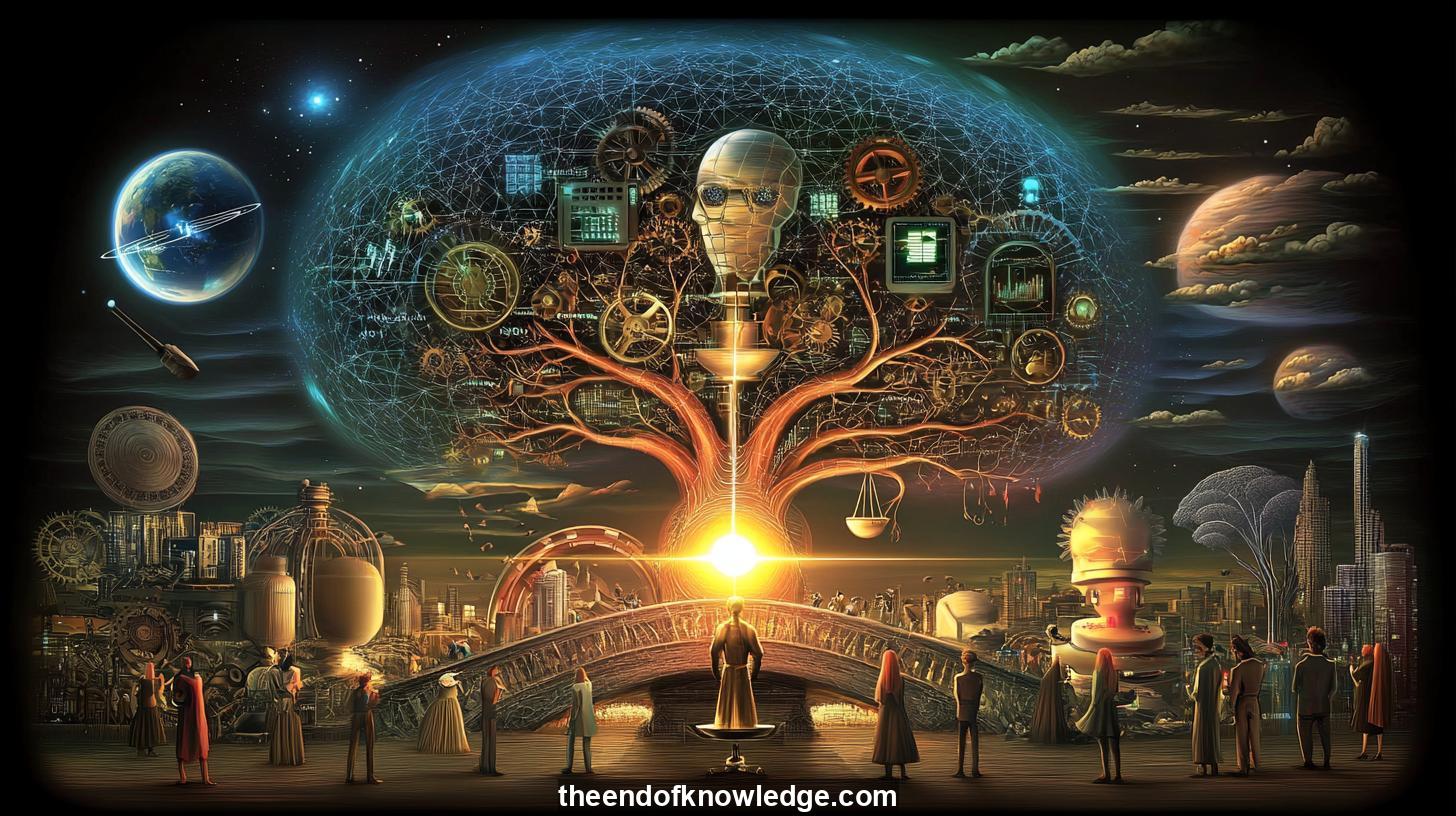 >
>
Concept Graph, Resume & KeyIdeas using DeepSeek R1 :
Resume:
The conversation revolves around the impact of artificial intelligence (AI) on businesses and society, focusing on the role of the Chief Artificial Intelligence Officer (CAIO) and the challenges of adapting to this new technological paradigm. The discussion emphasizes the need for organizations to embrace AI not just as a tool for efficiency but as a transformative force that requires ethical governance, transparency, and accountability. The transcript highlights the tension between the old paradigms of business and the new realities imposed by AI, where resistance to change is a significant barrier. It also touches on the importance of leadership in navigating this transition, with the CAIO playing a pivotal role in aligning organizational strategies with the ethical and operational demands of AI. The conversation further explores the broader societal implications, including the potential for job displacement and the need for policies that address the human impact of technological advancements. Finally, it underscores the importance of adaptability and the responsibility of individuals and organizations to proactively shape the future in a way that balances innovation with human values.30 Key Ideas:
1.- The CAIO is a critical role in guiding organizations through the integration of AI technologies.
2.- AI is not just a tool for efficiency but a transformative force requiring ethical governance.
3.- Resistance to change is a major barrier to AI adoption in organizations.
4.- Leadership must align organizational strategies with the ethical demands of AI.
5.- Transparency and accountability are essential for building trust in AI systems.
6.- The societal impact of AI includes potential job displacement and the need for new policies.
7.- Adaptability is key for individuals and organizations to thrive in an AI-driven world.
8.- The CAIO must balance innovation with human values and ethical considerations.
9.- Organizations need to reconfigure their processes and roles to accommodate AI.
10.- Ethical governance of AI requires collaboration between governments and private sectors.
11.- The role of the CAIO involves supervising AI development and ensuring compliance with regulations.
12.- AI systems must be auditable and interpretable to ensure accountability.
13.- Blockchain technology can enhance transparency and traceability in AI processes.
14.- The integration of AI into organizations requires a cultural shift toward innovation.
15.- Leadership must address the psychological impact of AI on employees, including fear and resistance.
16.- The CAIO must act as a change agent, facilitating the transition to AI-driven processes.
17.- Organizations that fail to adapt to AI risk losing their competitive edge.
18.- The societal impact of AI necessitates a new contract between governments, businesses, and citizens.
19.- Education and retraining programs are essential for preparing workers for an AI-driven economy.
20.- The CAIO must ensure that AI systems align with the organization's values and mission.
21.- The ethical implications of AI extend beyond technology to issues of privacy and bias.
22.- Collaboration between public and private sectors is crucial for regulating AI.
23.- The CAIO must navigate the tension between innovation and preserving human-centric values.
24.- AI presents both opportunities and challenges for economic growth and social stability.
25.- The role of the CAIO is to ensure that AI systems are used responsibly and ethically.
26.- Organizations must invest in talent that can manage and interpret AI systems effectively.
27.- The CAIO must communicate the benefits and risks of AI to all stakeholders.
28.- AI has the potential to create new industries and job opportunities, but it also disrupts existing ones.
29.- The CAIO must lead by example, demonstrating adaptability and a willingness to learn.
30.- The future of AI depends on balancing technological advancement with human well-being.
Interviews by Plácido Doménech Espí & Guests - Knowledge Vault built byDavid Vivancos 2025